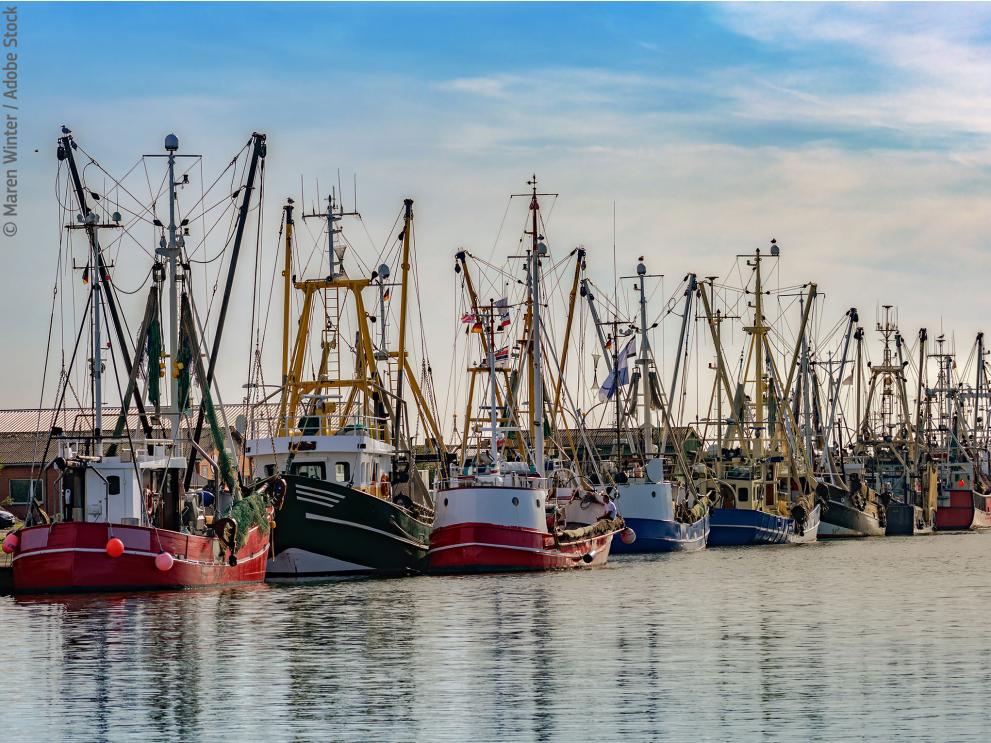
Following the adoption of the Partnership Agreement 2021-2027 with Germany, the Commission has adopted the European Maritime, Fisheries and Aquaculture Fund (EMFAF) programme for Germany, to implement the EU common fisheries policy (CFP) and EU policy priorities outlined in the European Green Deal. The total financial allocation for the German programme 2021-2027 is €302.6 million, of which the EU contribution accounts for €211.8 million.
Commissioner for Environment, Oceans and Fisheries, Virginijus Sinkevičius, said:
I am pleased to announce this new EMFAF Programme that will support a resilient, sustainable and low-carbon fisheries and aquaculture sector in Germany. It will be a key tool as well to boost the digital transition of the sector and reinforce the economic and social vitality of coastal and inland communities in Germany. The German EMFAF programme will support the protection and restoration of biological diversity of marine and inland ecosystems. I also welcome the German initiative to set up a ‘Concept Commission on the Future of German Baltic Sea Fisheries’, whose recommendations will be implemented as Operation of Strategic Importance under the German EMFAF programme and which will provide key support to the resilience building of the German Baltic Sea fisheries.
Supported activities
49% of the programme’s allocation will be dedicated to sustainable fisheries, 33% will be invested in sustainable aquaculture and in processing and marketing, 10% will be dedicated to sustainable blue economy in coastal and inland regions and 2% will be invested in the strengthening of international ocean governance, all contributing to the EU’s environmental and climate objectives. The EMFAF will support also innovation with a focus on energy efficiency and CO2 reduction, consisting of knowledge sharing and transfer between research organisation and the fisheries and aquaculture sectors.
The programme will support, among other things:
- Sustainable fisheries: investments in innovation and fishing vessels contributing to green transition, improving health, safety and working condition on board, human capital and generational renewal; innovation and diversification of fishing activities; protection and restoration of natural resources, including more selective fishing gear; energy efficiency and decarbonisation of fishing activities; fisheries control and data collection.
- Sustainable aquaculture: investments improving economic, environmental and social sustainability of aquaculture; strengthening the resilience of aquaculture to climate change, diversification of farmed aquaculture species; natural resource and energy efficiency, decarbonisation in aquaculture and the processing of fish products, support for producer organisations.
- Sustainable blue economy: development of coastal and inland areas through Local Action Groups (LAG).
- International ocean governance: development of marine knowledge and marine eco-system studies and projects, maritime spatial planning and maritime surveillance.
Main expected outcomes until 2027
The German EMFAF programme will contribute to the EU policy priorities outlined in the European Green Deal, Farm to Fork and Biodiversity strategies.
The programme will increase the resilience of the fisheries and aquaculture sectors, by supporting diversification within and outside the sector, the structural adjustment of the fleet to restore the balance between fishing capacity and diminishing fishing opportunities in the Baltic Sea, productive investments, innovation and decreasing dependency on fossil fuels to address current and future challenges, and a support mechanism to protect the sector in case of future crises. The programme also plans to stimulate modernisation and innovation.
The programme will drive also the green transition of the fisheries sector with investments in more selective fishing gear, and support to decarbonisation, energy efficiency and engine replacement. Support will be provided to environmental aquaculture and investments in renewable energy sources, a more efficient use of natural resources, reduction of waste, research projects and studies on recycling and occurrence of macro- and micro-waste in the marine environment will be supported.
The digital transition will be supported in particular in data collection and fisheries control. The programme will invest in digitalisation, modern equipment and training. Upstream, this will allow for better knowledge, to underpin effective fisheries management; downstream, it will facilitate a better enforcement of the landing obligation and prevention of illegal fishing and discarding practices.
The German EMFAF programme will focus also on the protection and restoration of biodiversity of marine and inland ecosystems. Concretely, support will be given for restoration and monitoring of Natura 2000 sites with a particular focus on pressures on marine and coastal areas and on habitats and species which are in unfavourable conservation status. Projects aimed at restoring the continuity of rivers and creation and conservation of spawning grounds, passive fishing for marine litter. These projects will support the Biodiversity Strategy for 2030 and the German Prioritised Action Framework objectives.
Local communities depending on fishing and aquaculture will benefit from community-led local development strategies (CLLD), which will support the development of entrepreneurship and development of short supply chains, , new initiatives in the regional blue economy, adaptation of regional production methods to climate change, as well as revitalisation of old crafts and regional traditions.
Background
The EMFAF runs from 2021 to 2027 and supports the EU common fisheries policy (CFP), the EU maritime policy and the EU agenda for international ocean governance. The fund helps achieve sustainable fisheries and conserve marine biological resources.
Article 8 of the EMFAF Regulation (EU) 2021/1139 requires Member States to produce a national implementation programme for the EMFAF. The German EMFAF programme focuses on EU priorities, laying down the strategy and investment priorities, including the indicative annual financial allocation for each priority. The programme is subject to approval by the European Commission.
More information
Regulation (EU) 2021/1060 of the European Parliament and of the Council of 24 June 2021 laying down common provisions on the European Regional Development Fund, the European Social Fund Plus, the Cohesion Fund, the Just Transition Fund and the European Maritime, Fisheries and Aquaculture Fund and financial rules for those and for the Asylum, Migration and Integration Fund, the Internal Security Fund and the Instrument for Financial Support for Border Management and Visa Policy
Details
- Publication date
- 24 November 2022
- Author
- Directorate-General for Maritime Affairs and Fisheries

